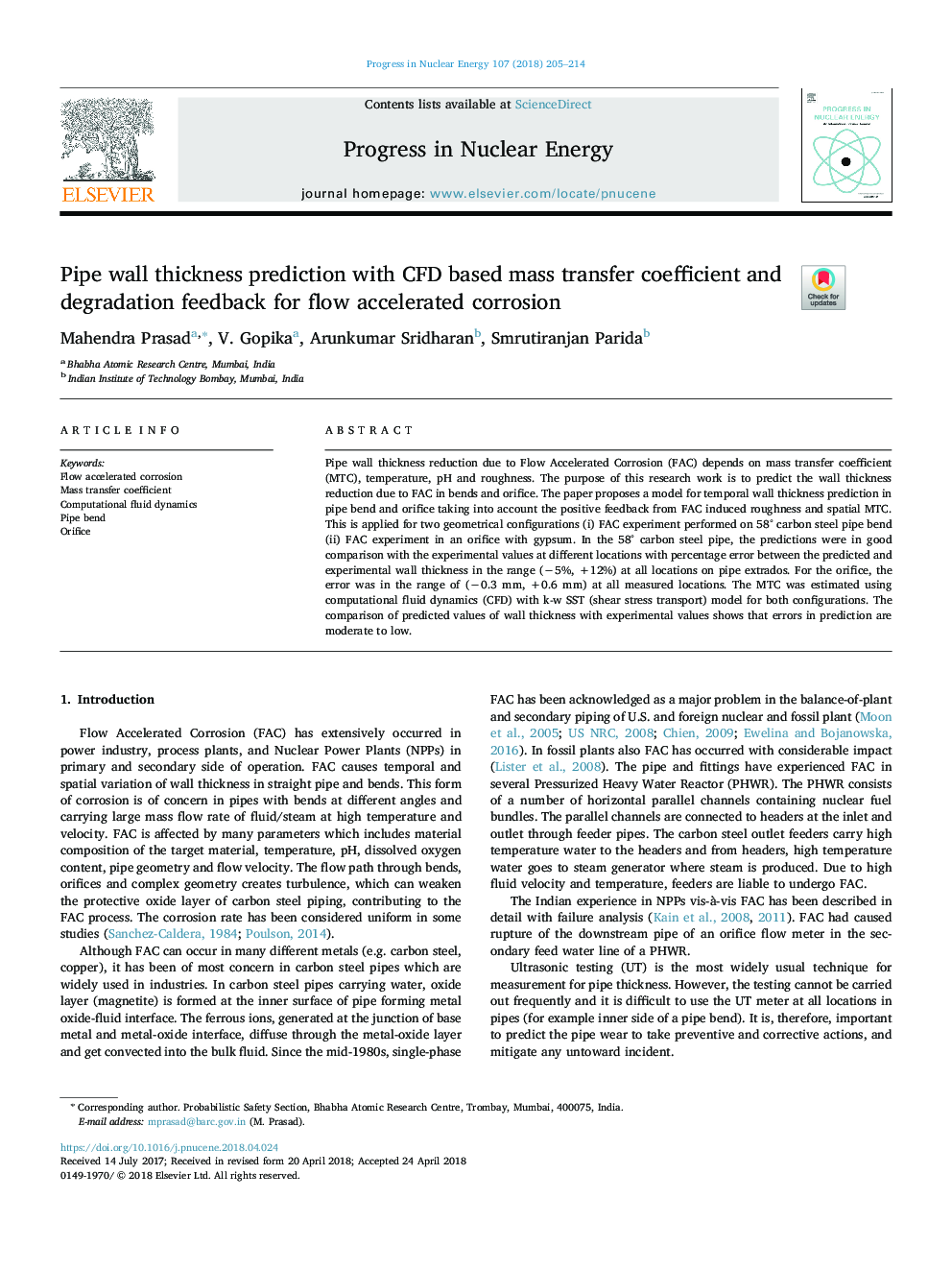| Article ID | Journal | Published Year | Pages | File Type |
|---|---|---|---|---|
| 8084243 | Progress in Nuclear Energy | 2018 | 10 Pages |
Abstract
Pipe wall thickness reduction due to Flow Accelerated Corrosion (FAC) depends on mass transfer coefficient (MTC), temperature, pH and roughness. The purpose of this research work is to predict the wall thickness reduction due to FAC in bends and orifice. The paper proposes a model for temporal wall thickness prediction in pipe bend and orifice taking into account the positive feedback from FAC induced roughness and spatial MTC. This is applied for two geometrical configurations (i) FAC experiment performed on 58° carbon steel pipe bend (ii) FAC experiment in an orifice with gypsum. In the 58° carbon steel pipe, the predictions were in good comparison with the experimental values at different locations with percentage error between the predicted and experimental wall thickness in the range (â5%, +12%) at all locations on pipe extrados. For the orifice, the error was in the range of (â0.3 mm, +0.6 mm) at all measured locations. The MTC was estimated using computational fluid dynamics (CFD) with k-w SST (shear stress transport) model for both configurations. The comparison of predicted values of wall thickness with experimental values shows that errors in prediction are moderate to low.
Keywords
Related Topics
Physical Sciences and Engineering
Energy
Energy Engineering and Power Technology
Authors
Mahendra Prasad, V. Gopika, Arunkumar Sridharan, Smrutiranjan Parida,
